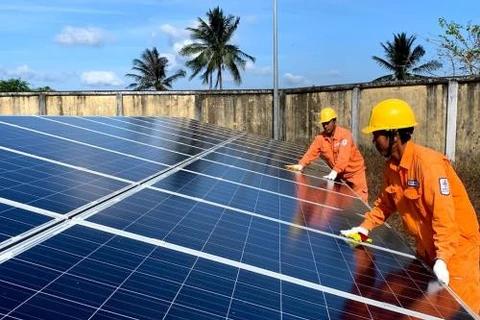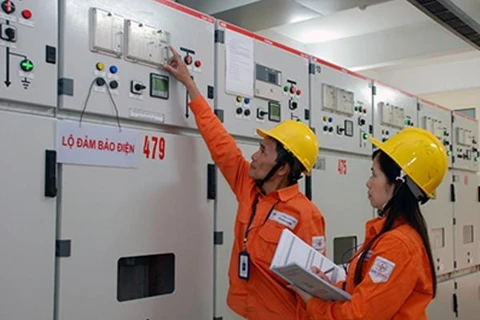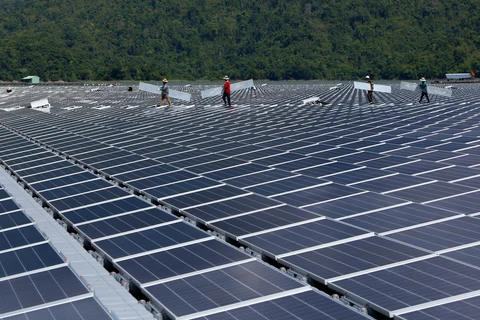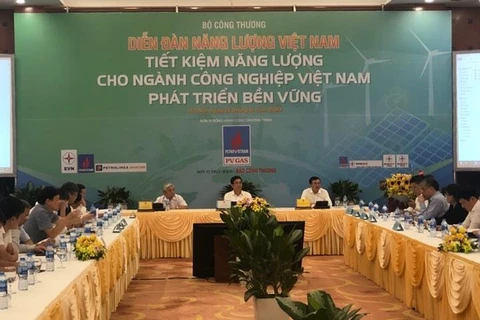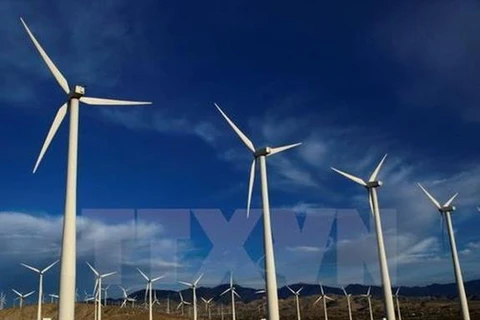 Solar panels on the rooftop of a block in Ang Mo Kio. Currently, solar energy contributes less than 1 per cent to Singapore's total energy mix. (Source:https://www.straitstimes.com)
Solar panels on the rooftop of a block in Ang Mo Kio. Currently, solar energy contributes less than 1 per cent to Singapore's total energy mix. (Source:https://www.straitstimes.com) Singapore (VNA) – Singapore has set a target of stepping up its solar capacity by more than seven times from the current level, and increasing the current output of 260 megawatt-peak (MWp) to 2 gigawatt-peak (GWp) by 2030.
Minister for Trade and Industry Chan Chun Sing said at the opening of the Singapore International Energy Week on October 29 that the targeted output is enough to meet the annual power needs of around 350,000 households in Singapore, or about 4 percent of its total electricity demand today.
Currently, solar energy contributes less than 1 percent to Singapore's total energy mix. More than 95 percent comes from natural gas, the cleanest form of fossil fuel. Other sources, such as oil and coal, round up the mix.
To reach the target, the Singaporean Government is considering several measures, he said.
The first is to maximise the deployment of solar panels onto available surfaces, including rooftops, reservoirs, offshore sea space, and on the vertical surfaces of buildings.
By 2020, one in two HDB rooftops will have solar panels deployed. Under the recently awarded SolarNova Tender 4 announced earlier this month, solar panels will also be deployed at 30 schools, as well as 13 Ministry of Defence sites.
Singapore will also invest more in research and development into energy storage systems. These essentially function as batteries when hooked up to solar systems, helping to overcome the challenge of intermittent sunshine.
Experts said Singapore's target of having 2GWp of installed solar capacity by 2030 is an ambitious target, but one that was achievable if certain conditions are met.
Professor Subodh Mhaisalkar, executive director for the Energy Research Institute at the Nanyang Technological University, pointed to Singapore's limited land area and built-up environment, saying that besides HDB rooftops, solar panels should be installed on residential and industrial buildings, walkways and depots, and on water bodies such as reservoirs and the sea.
Meanwhile, Dr Thomas Reindl, deputy chief executive of the Solar Energy Research Institute of Singapore (Seris) at the National University of Singapore , said the target seems achievable, as long as oil and gas prices don't fall well below today's levels./.
VNA
